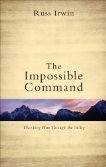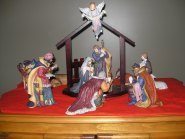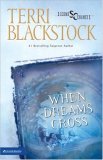Eric E. Wright's Blog, page 45
March 27, 2012
A Hope-so Spring?
Will winter never end? Will spring never come? Some years we hear this lament on every side. Years when storms continue through March and April. Years when May is cold and damp. Years when we wake  up to frost in May.
up to frost in May.
So far, this year is different. The winter has been mild and the signs of spring have been all around from late February. Crocuses peeked up early. Everywhere there are the signs that tulips and daffodils will soon be in glorious bloom. Buds on the soft maples and poplars have swollen and burst into pendants of inconspicuous bloom. Robins have arrived. Geese wing their way north in honking V's. And I'm itchy to plant seeds and rake the yard.
Instead of having to defer the hope of warmer weather week after  week, as we have in other years, an early spring seems inevitable. Of course, when it comes to weather, anything can happen but our expectation of spring seems quite solid. After all, it does come every year.
week, as we have in other years, an early spring seems inevitable. Of course, when it comes to weather, anything can happen but our expectation of spring seems quite solid. After all, it does come every year.
Sometimes life, like cold, dreary weather seems hopeless. And unlike the spring, the outcome is far from certain. Year after year some pinch pennies without any expectation they will ever have enough extra to spend on a trip or even to pay bills. Others endure an endless bout of illness. Some struggle day after day with depression. Still others head out every day in search of a job with little hope of finding employment. Many suffer injustice or persecution without any hope of relief.
 The Psalm writers echo our common human feelings of hopelessness in difficult circumstances. "My soul is in anguish. How long, O Lord" (Ps. 6:3)? "Why do you hide yourself in times of trouble" (Ps. 10:1). "Why are you so far from saving me, so far from the words of my groaning" (Ps. 22:1)? "My soul is downcast within me" (Ps. 42:6).
The Psalm writers echo our common human feelings of hopelessness in difficult circumstances. "My soul is in anguish. How long, O Lord" (Ps. 6:3)? "Why do you hide yourself in times of trouble" (Ps. 10:1). "Why are you so far from saving me, so far from the words of my groaning" (Ps. 22:1)? "My soul is downcast within me" (Ps. 42:6).
Despite these deep feelings of anguish, the authors of the various Psalms have hope. Their hope, like that of any genuine God-follower, is rooted in the character and sovereignty of God in whose capable hands, the future rests. In Psalm 13 after his lament, David writes, "But I trust in your unfailing love; my heart rejoices in your salvation" (Ps. 13:5). In Psalms 42 & 43 the sons of Korah repeat one refrain three times as an encouragement to self-talk. "Why are you downcast…put your hope in God" (Ps. 42:5,11; 43:5). You can also check out Psalm 71.
Is biblical hope wishful thinking? One friend has a difficult time with the word hope. In his experience it means uncertainty, an "I-hope-so" kind of attitude. Not so, the biblical writers. "Now faith is  being sure of what we hope for and certain of what we do not see" (Heb 11:1). Those with faith in the Christian verities have confidence that: God is, heaven exists, Christ died for our sins, all things work for the good of those who love God, and history is moving toward a climax during which time Christ will return. We are certain of these things. "These three remain: faith, hope and love" (1 Cor. 13:13).
being sure of what we hope for and certain of what we do not see" (Heb 11:1). Those with faith in the Christian verities have confidence that: God is, heaven exists, Christ died for our sins, all things work for the good of those who love God, and history is moving toward a climax during which time Christ will return. We are certain of these things. "These three remain: faith, hope and love" (1 Cor. 13:13).
That which astounds me repeatedly is the hopeful and cheerful  outlook displayed by Christian believers in the most difficult of situations. Imprisoned and tortured believers in Iran and China, for example, show us the way through a minefield of doubt and discouragement. May Christian hope transform each of our days.
outlook displayed by Christian believers in the most difficult of situations. Imprisoned and tortured believers in Iran and China, for example, show us the way through a minefield of doubt and discouragement. May Christian hope transform each of our days.








February 24, 2012
Planted by Streams of Water
We live on a country road which winds up a gentle hill. On the downhill side of the road the trees are especially healthy and prolific. During summer the canopy throws the glade into deep, cooling shadow. The closer the trees grow to  the stream at the bottom of our property, the taller they grow. Many rise 50 or 60 feet into the sky.
the stream at the bottom of our property, the taller they grow. Many rise 50 or 60 feet into the sky.
Having studied forestry as an undergrad, I love trees, especially the white pine, hemlock, cedar, maple, oak, and beech that grow on our acre and a half. I would not deny that there is beauty everywhere on earth: in the arctic, across the great plains, in the pampas of the Argentine, among the shifting dunes of the Sahara, and in the craggy granite heights of great mountains. But trees are special. Not only are they the lungs of the planet but they also clothe the skeleton of earth with grace and beauty.
For there to be healthy trees, there must be abundant water. Fortunately, we live near a perennial spring that feeds our little stream throughout the year.
The other day, I was reading Psalm one when I realized that our property graphically illustrates this passage. The person who delights in God's law "is like a tree planted by streams of water" (Psalm 1:3). The blessed man or woman "does not walk in the counsel of the wicked or stand in the way of sinners or sit in the seat of mockers but his delight is in the law of the Lord, and on his law he meditates day and night" (Psalm 1:1,2).
How does the blessed person avoid hurtful associations? Like the towering trees on our property, the person who delights in God's Word, drinks in the life-giving sustenance of divine wisdom day and night. This Bible-saturated soul bears the fruit of grace and holiness through imbibing God's principles and exhortations and truths. Among the vast array of benefits is discernment about how to avoid the kind of friendships that destroy while embracing those that edify.
Times of severe trial may come, but the faith of the blessed person does not wither, focused as it is on a stream of meditation that connects the believer to the very heart of God. By contrast, the unforgiven who scorn the Bible find their lives, like the leaves of fall, withering and blowing away with the winds of adversity. They will not stand during the final judgment.
The habit of daily Bible reading and devotional prayer has often rescued me from discouragement or making foolish decisions. Join me then, in renewing your delight in the Bible and embracing the practice of daily meditation.








Prospering Where Planted
We live on a country road which winds up a gentle hill. On the downhill side of the road the trees are especially healthy and prolific. During summer the canopy throws the glade into deep, cooling shadow. The closer the trees grow to  the stream at the bottom of our property, the taller they grow. Many rise 50 or 60 feet into the sky.
the stream at the bottom of our property, the taller they grow. Many rise 50 or 60 feet into the sky.
Having studied forestry as an undergrad, I love trees, especially the white pine, hemlock, cedar, maple, oak, and beech that grow on our acre and a half. I would not deny that there is beauty everywhere on earth: in the arctic, across the great plains, in the pampas of the Argentine, among the shifting dunes of the Sahara, and in the craggy granite heights of great mountains. But trees are special. Not only are they the lungs of the planet but they also clothe the skeleton of earth with grace and beauty.
For there to be healthy trees, there must be abundant water. Fortunately, we live near a perennial spring that feeds our little stream throughout the year.
The other day, I was reading Psalm one when I realized that our property graphically illustrates this passage. The person who delights in God's law "is like a tree planted by streams of water" (Psalm 1:3). The blessed man or woman "does not walk in the counsel of the wicked or stand in the way of sinners or sit in the seat of mockers but his delight is in the law of the Lord, and on his law he meditates day and night" (Psalm 1:1,2).
How does the blessed person avoid hurtful associations? Like the towering trees on our property, the person who delights in God's Word, drinks in the life-giving sustenance of divine wisdom day and night. This Bible-saturated soul bears the fruit of grace and holiness through imbibing God's principles and exhortations and truths. Among the vast array of benefits is discernment about how to avoid the kind of friendships that destroy while embracing those that edify.
Times of severe trial may come, but the faith of the blessed person does not wither, focused as it is on a stream of meditation that connects the believer to the very heart of God. By contrast, the unforgiven who scorn the Bible find their lives, like the leaves of fall, withering and blowing away with the winds of adversity. They will not stand during the final judgment.
The habit of daily Bible reading and devotional prayer has often rescued me from discouragement or making foolish decisions. Join me then, in renewing your delight in the Bible and embracing the practice of daily meditation.








February 8, 2012
An Ocean of Comfort
On a recent vacation to the seaside, the vastness of the ocean enthralled us once again. From where we stood on the sandy shore of South Carolina, the briny deep continued a thousand miles or more to the coasts of Europe and Africa. The sea seems to cast a spell on people. No wonder so many pay a premium for a bit of ocean front land on which to build a home or cottage.
Those who study such things tell us that, in volume, the ocean contains 322,300,000 cubic miles of water. That's cubic miles! It encompasses 71% of the surface of the earth, some 140 million square miles.
Mind-boggling. And thus we were a bit perplexed by a man we saw walking along the beach listening to music on an Ipod and texting on his cell phone at the same time. Was he so used to the rise and fall of the relentless tides that it had become commonplace, or was he just another victim of the techno-slavery of our culture?
The magnitude of the ocean, makes a comment by Isaiah all the  more astounding. "Who [the Lord God] has measured the waters in the hollow of his hand" (Is. 40:1 NKJV). Just think of it, God holds all that water in the palm of his hand. How immeasurable is the God and Father of our Lord Jesus Christ!
more astounding. "Who [the Lord God] has measured the waters in the hollow of his hand" (Is. 40:1 NKJV). Just think of it, God holds all that water in the palm of his hand. How immeasurable is the God and Father of our Lord Jesus Christ!
The chapter containing this comparison, and others like it, begins with the words, "Comfort, yes comfort My people" (Is. 40:1 NKJV)! The words come to me with power at a time of puzzlement and some discouragement. They bring comfort because they tell me that God has the capacity to understand, the wisdom to know what is best, and the ability to solve whatever problem I have—or enable me to endure whatever difficulty I face. He is infinitely bigger than all my perplexities.
What problem or pain do you face today? Consider the ocean and lift up your eyes to the omnipotent God who is touched by the feeling of our infirmities.








January 6, 2012
Preparing ourselves for tragedy with being morose
 The Impossible Command by Russ Irwin
The Impossible Command by Russ IrwinMy rating: 5 of 5 stars
In "The Impossible Command - Thanking Him Through The Valley," Russ Irwin addresses two purposes in mind: how to know and obey Eph. 5:20 (Always give thanks for everything), and how to gain a better understanding of God’s sovereign control.
Irwin, rightly, feels that we should be preparing Christians ahead of time to face tough situations, tragedies, cancer, and death. As D.A Carson writes: “It is important to establish Christian structures of thought that are already ‘givens’ before pain and bereavement strike”. Irwin, rightly feels, that few Christian leader train their people ahead of time to face tough situations.
Using the two real life examples he lays out the challenge and practice of giving thanks not, IN all things but FOR all things as commanded in Eph. 5:20. Dan and Bettie from Dayton, Ohio faced tragedy. They struggled to understand why and how a good God could allow such a thing to happen. [To avoid spoiling the book, I’ll mention the tragedies in general terms only.] Gradually, the Scriptures begin to give them comfort and teach them to face tragedy with a better attitude.
Thane a new couple, Christians also, move in next door and become good friends. They too face a terrible tragedy. Dan and Bettie struggle to comfort and encourage them.
Dan and Bettie move to Kansas to take a better job, where they join a church and discover a pastor teaching on Eph. 5 and on God's sovereignty over everything. The teaching makes sense, comforts them, and accelerates their growth in Christ. They learn that they are commanded to be filled with the Spirit, meaning be under the control of the Spirit. Three ways to measure this in the text are: being able to sing joyfully to the Lord, being able to give thanks for all things, and living at peace with all men.
As Dan and Bettie ponder this teaching from the Word many questions arise. Irwin uses their example of growth in understanding tragedy to help us prepare for it. He includes helpful quotes from many who have gone through grief and pain. Helen Roseveare who was raped and beaten in the Congo learned to trust God without understanding the reasons for the painful experience.
Each of us needs to ask ourselves some key questions. Do I love God more and than anything or anyone he has given? Is what I have my own or is it a gift of undeserved grace? Can I trust him when He does not give me the reason why things happen? Do I believe that He has control over the universe and works all things for the good of His people?
I highly recommend this book. All of us need to be prepared with a Christian attitude toward suffering, pain and loss. And yet, as Irwin recognizes, being human we probably will not be able to give thanks immediately for bad things.
The only weakness I see in Irwin’s book is in this area of our common humanity. I would have liked to have seen a description of Christ, the Perfect Man, reacting in the Garden of Gethsemane to the horrific prospect of death on the cross and separation from the Father. I see a recognition here of the supremacy of God’s will, but I also see the agony of Christ as he asked the Father to let this cup pass from him. Certainly, Christ accepted God’s will as good and perfect and ultimately reveled in His role as the Saviour of the World. But as man he suffered terribly through the event. Surely, in tragedy our initial approach as human beings will be sorrow, pain, agony and we will approach those who suffer with empathy, not by reciting Rom. 8:28 or Eph. 5:20.
In spite of this quibble, I feel every Christian should read this book. The more prepared we are to accept the Big Picture of God’s sovereignty, the more comfort we will find in the tough situations of life.
View all my reviews
January 5, 2012
Goals or Resolutions–Facing the New Year
All that is left of the Christmas turkey is the memory of our family dinner and a potential pot of turkey soup. We're taking down Christmas decorations and storing them for next year. A new calendar decor ates the wall. It's time to look seriously at the New Year ahead. Resolutions anyone?
ates the wall. It's time to look seriously at the New Year ahead. Resolutions anyone?
How does it go? I resolve to eat less, to exercise more, to be kinder, more generous, and to pray more. Resolutions are easy to make but easier to forget. And yet we need to do something. Without laying out a path for the New Year, we may end up in bypass meadow or the slough of despondency!
For this reason, at New Years, I make up a list of goals—not really too different from resolutions. I write the current year's list on a three by five card and keep the new one, along with those from other years in the front pocket of my diary, cum appointment book. By keeping the cards from previous years, I can look back and see if I've made progress or regressed in any area over the last few years. As I look back to cards from other years, I find encouragement in seeing where objectives have been met. To keep me on my toes, I'll need to refer back to this year's card often during the year ahead.
Goals give me a sense of direction, defining for me areas where I want to improve. So I set goals in the areas of, for example, reading, Bible study, prayer, exercise, writing, networking, hospitality, ministry, etc.
Since my goals, although fairly general, are somewhat measurable, I can tell if I'm making progress. For example, my goal is to read one non-fiction book for every two or three books of fiction I read. Since I love entertaining stories, that's a hard one, but I do keep a careful record of the books I read. Another objective is to walk at least 30 minutes a day, four days a week. Last year it was 40 minutes a day, five days out of seven. Since arthritis has been attacking my knees, I've had to cut back on that. Another aim is to see my new suspense novel, Riptide, published and three more of my books turned into ebooks. Still another goal is to turn our zillions of slides into digital images by the end of the year.
Some aims are ill-defined early in the year, but become clarified as the year advances. At this point, I'm not quite sure how many blogs I should write, nor how general or narrow their focus should be. Neither do I know quite what to do with the whole area of networking, since Facebook and Twitter can be addictive and wasteful of time. (Every writing pundit tells me I need to be active here!) I'm inclined to confine my presence on FB and Tw to early morning and late afternoon. I'll have to see how that works and refine my goal as the year advances.
Of course, as a Christian, my main goal is to grow in grace and in the knowledge of our Lord and Saviour Jesus Christ. How do I measure that? But that's for another blog.








December 22, 2011
Christmas At Our House –Rich Symbolism
Christmas is here again; a season full of joyful singing, rich symbolism and happy get-togethers. A Christmas  wreath hangs on our door, symbolic of the nativity wreaths used for generations in our churches, wreaths in which four candles stood, one candle for each of the four Sundays leading up to Christmas.
wreath hangs on our door, symbolic of the nativity wreaths used for generations in our churches, wreaths in which four candles stood, one candle for each of the four Sundays leading up to Christmas.
Christmas cards decorate our living room reminding us of the many lives that have touched ours: relatives, neighbours, and friends. We look forward every year to receiving your cards and letters!
A poinsettia sits on the coffee table. Brought from Mexico in 1828, these plants embodied for them the star of Bethlehem. Others feel that its green leaves represent the everlasting life Christ came to give, the red leaves the blood he shed, and the yellow flowers in the centre, the wounds he endured.
Presents have been purchased but not all wrapped, symbolic of the gifts of gold, frankincense and myrrh brought by the wise men to place at Jesus' feet.
Candles are ready to light, speaking of the light that Jesus brought to the world. Our mouths fall open when we try to imagine a world untouched by hi s light and his life.
s light and his life.
Carols play in the background. Joy to the World. Hark the Herald Angels Sing. Silent Night. O Come All Ye Faithful.
In pride of place sits our manger scene, symbolic of everything good Mary Helen and I enjoy. There is Mary who bore the Christ child, Joseph who refused to divorce her, shepherds beckoned to the scene by an angel choir and wise men led from the east by a star.
With our main celebration taking place at our daughter's house, we chose this year not to erect a Christmas tree. Too much work—too little symbolism. For decoration, we do have a small ceramic one. Not that we're opposed to the tradition which is said to originate in Germany in the 16th century where trees both inside and out were decorated with roses, apples, and coloured paper. It is believed that Martin Luther was the first to light a Christmas tree with candles.
Nor do we have a Santa Claus. I loved to hear Twas the Night Before Christmas read to me when I was a child. Now I love to re-read the Christmas story in Matthew and Luke. And yet, we are told, there is a legitimate connection with Saint Nicolas. "The original Santa Claus, St. Nicholas, was born in Turkey in the 4th century. He was very pious from an early age, devoting his life to Christianity. He became widely known for his generosity for the poor. But the Romans held him in contempt. He was imprisoned and tortured. But when Constantine became emperor of Rome, he allowed Nicholas to go free. Constantine became a Christian and convened the Council of Nicaea in 325. Nicholas was a delegate to the council. He is especially noted for his love of children and for his generosity."
What a wonderful time of the year: visits with friends, delicious  meals, gatherings with family, candle-light services and rich symbolism. The symbols speak to me of that day over 56 years ago when Jesus Christ came into my heart bringing forgiveness, cleansing and a new and exciting motivation for living.
meals, gatherings with family, candle-light services and rich symbolism. The symbols speak to me of that day over 56 years ago when Jesus Christ came into my heart bringing forgiveness, cleansing and a new and exciting motivation for living.
May your Christmas vibrate with the echoes of Bethlehem and shine with the light from the Christmas star!








December 19, 2011
The Wild Frontier after Little Big Horn
 A Good Man by Guy Vanderhaeghe
A Good Man by Guy VanderhaegheMy rating: 4 of 5 stars
At the beginning, I had trouble getting into the story. It seemed slow, with long bits of narrative and new characters. However, it quickly captured my interest.
The time period, ten years after the US civil war and shortly after the massacre of Custer and his men at Little Big Horn helped to make it a memorable story. The setting in the wild west of Canada and the US, with modern day Alberta and Montana chief places added to the intrigue as did the cast of strange characters, some historical, some original. There is the willful and unpredictable Major Walsh whose sympathies with the Sioux seem destined for tragedy. There is Sioux Chief Sitting Bull and a host of lesser chiefs of his people and other tribes. There are confederate conspirators, Fenian revolutionaries, officers of the North West Mounted Police, American generals, and scheming politicians. But most menacing of all is Michael Dunne, a huge man with a genius for murder and mayhem.
The story of Wesley Case and the object of his love, Ada Tarr is woven into this narrative of swirling conflicts and competing characters. Can Wesley shake off the clutch of his wealthy father, escape the terrible memory that haunts him, and win the hand of Ada without falling victim to Dunne’s terrible wrath?
Vanderhaeghe’s amazing grasp of the period: Canadian and US history, medicines and products of that era, and Indian culture adds to the experience. The only thing that prevented me giving it a 5 out of 5 was the sometimes overblown narrative.
View all my reviewsGuy Vanderhaeghe
December 9, 2011
Pre-Christmas Special on ebooks
The Lightning File
Investigations in the rolling countryside east of Toronto lead journalist Josh Radley to a consortium of companies laundering drug money to finance terrorism. In an Arabic file, he discovers the key to a plot aimed at striking a devastating blow against American interests.
Relational turmoil
Just when Josh needs to concentrate on cracking the mysterious file that lists the terrorists’ targets, his marriage crashes. Angry and alone, Josh finds beautiful Pakistani psychiatrist, Nadia Khan, hard to resist. An internal struggle between his childhood faith and his adult skepticism adds to his turmoil.
Readers and reviewers enthuse: pulse-racing thriller – pages turn themselves – couldn’t put it down – realistic characters
Go to http://www.smashwords.com/books/view/...
Also available as a print book.
Ask for it at your local bookstore or go to www.countrywindow.ca
Through A Country Window
A light-hearted and inspirational look at country living from out where the sky springs free.
What happens when a farm girl from South Carolina and a city boy from Toronto trade their suburban split-level for a log house in the country? Besides crazy craft on the Ganaraska River and live theatre in a barnyard, Eric & Mary Helen Wright discover crickets in the bedroom, and thunder on the ridges. They also rediscover the creative majesty of God—and much more.
264 pages - 40 photographs
Pay $1.99 for Ebook at: http://www.smashwords.com/books/view/...
Also available in print. Go to: www.countrywindow.ca
Captives of Minara
Journalist uncovers human trafficking ring:
• Set in Pakistan’s turbulent present
• Journalist Josh Radley travels to the excavation of a 4500-year old city
• He stumbles on a gang kidnapping women and children
• Recurring nightmares revive memories of a childhood trauma
• Terror on the fabled Lahore-bound Khyber Mail
• Josh and his daughter, Janice, and wife, Stephanie, face sabotage, theft and murder.
READERS call it action-packed…authentic immersion in the culture…full of page-turning suspense…heart wrenching…vivid…gripping. Won Word Guild award for best suspense novel and runner up as best contemporary novel
While not $1.99 this is also a good deal through: Amazon.com; Kobo.ca/ Barnes & Noble; Apple Books; Sony Books.
To purchase paper copies go to your local bookstore or order through Wildwood Writing Service, 13643 Little Lake Road, Colborne, ON K0K 1S0 Canada. See www.countrywindow.ca for prices.
December 7, 2011
Terri Blackstock's When Dreams Cross
 When Dreams Cross by Terri Blackstock
When Dreams Cross by Terri BlackstockMy rating: 2 of 5 stars
I found this book annoying. You might ask why, as a man, I read it. Good question. One reason was that I'm finishing a romantic suspense novel written from the female perspective, so I though I could learn a thing or two from an expert.
For another reason, the book was passed on by a relative at a time when I was looking for an entertaining, morally uplifting, easy reading book. It was easy reading. It was entertaining to a degree. But on the other hand--very frustrating.
There were two characters, one a woman trying to fulfill her father's dream of a Christian theme park and a man whose gifted animations could really add to the park. They were Christians who met eight years after a disastrous broken engagement. And whenever they met sparks flew.
The book was full of god-talk but little depth and subtlety. The book was one big argument between the two, filled with misunderstandings and rancor. Now I realize that Christians aren't perfect. I ought to know. But the immaturity of these two was astounding. In their relationships they acted as if they hadn't learned the most basic things about the Christian faith: humility, patience, kindness, forgiveness. In a word the characters were cardboard cutouts with lots of passion but no depth.
After reading it, I shake my head at the thought of the millions and millions of copies of romance like this sold every year.
View all my reviews



